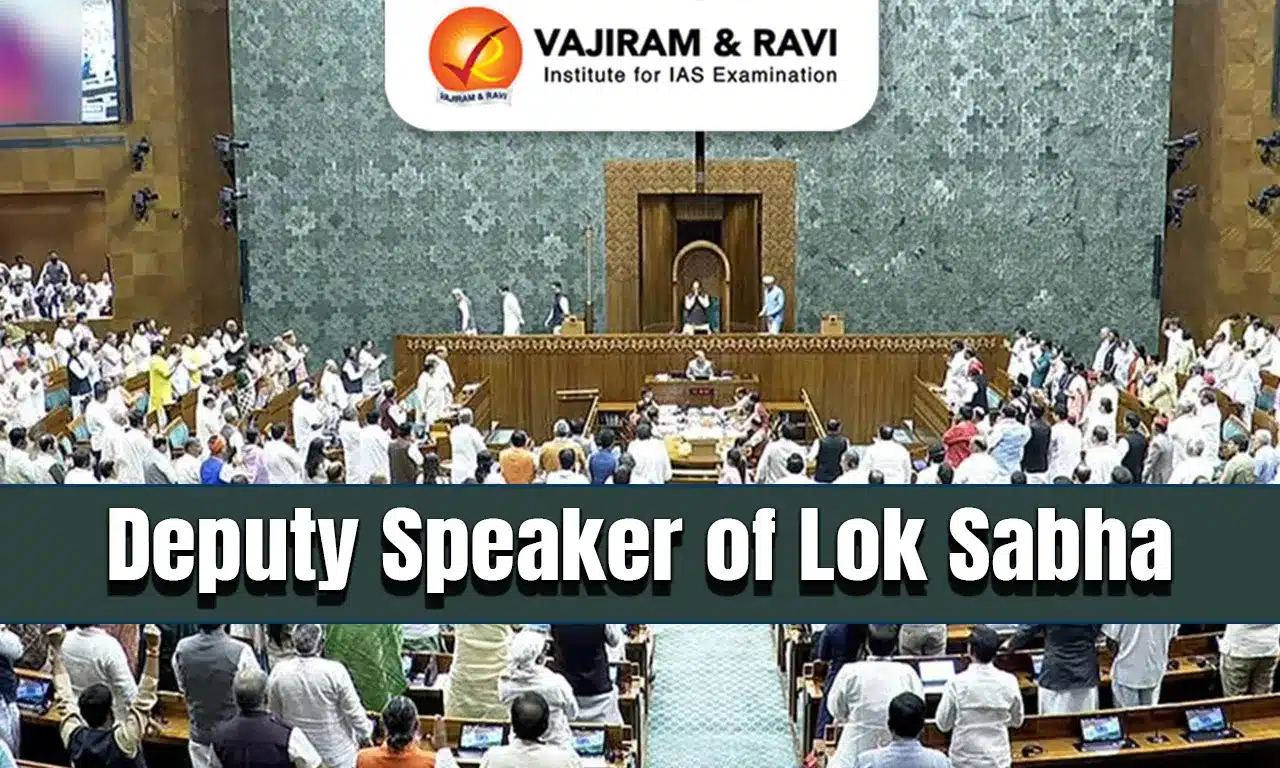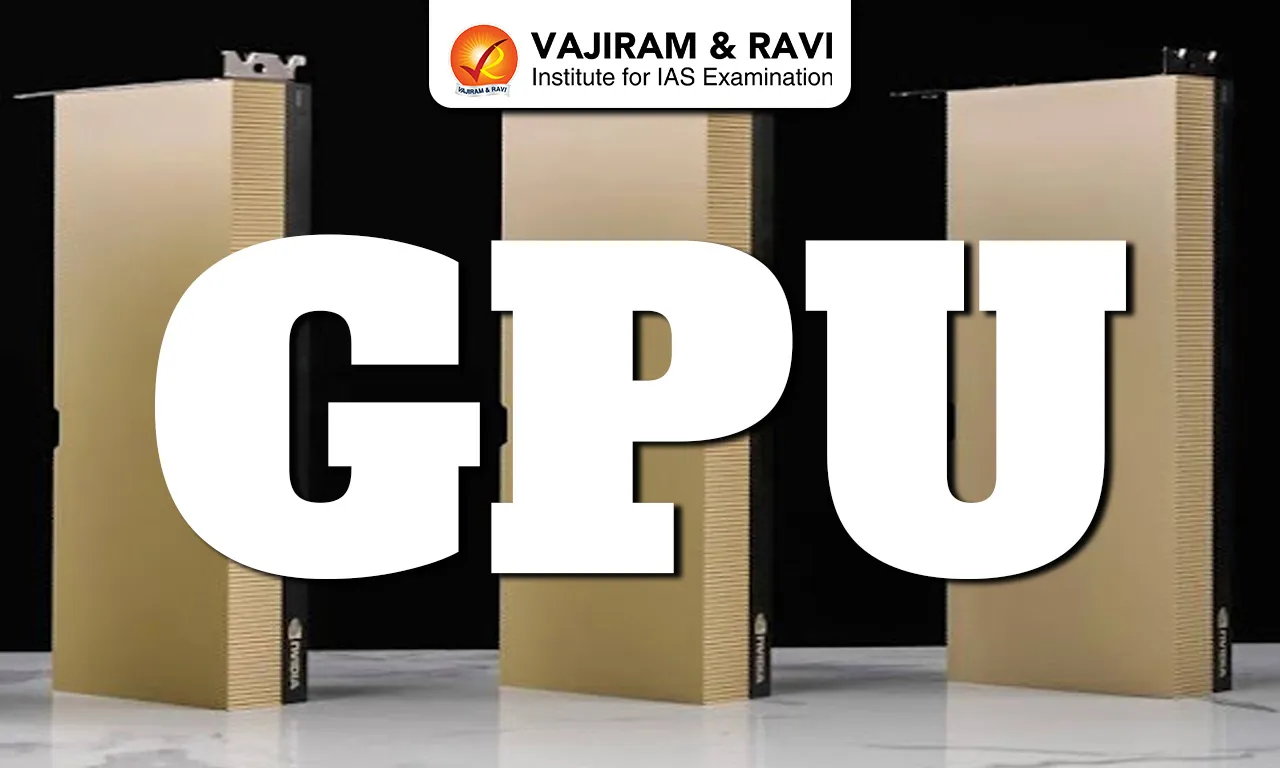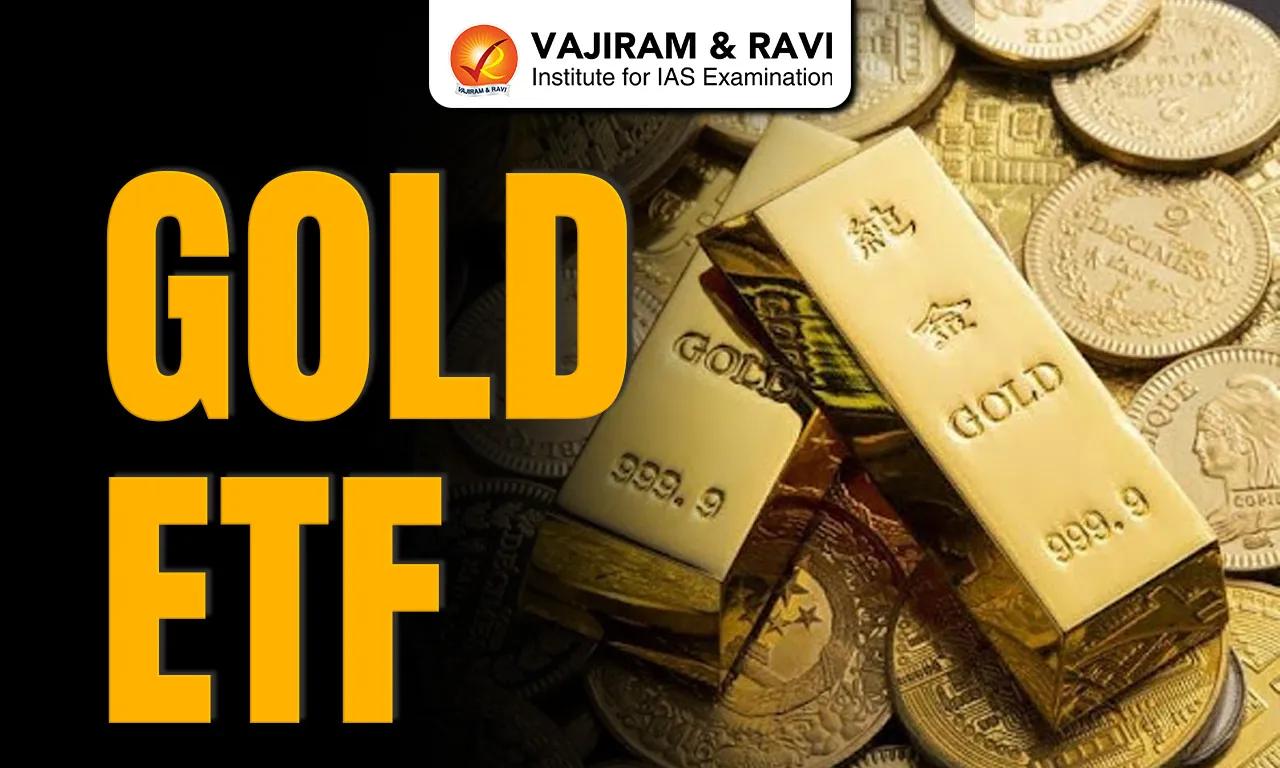Deputy Speaker of Lok Sabha Latest News
- The Deputy Speaker’s post has remained vacant for six years, raising concerns about constitutional compliance and democratic strength.
- In a parliamentary democracy, this role is not merely ceremonial but crucial for ensuring accountability, smooth functioning, and balanced power-sharing between the ruling party and the Opposition.
- The prolonged vacancy, reportedly due to the ruling government’s reluctance to offer the position to an Opposition member, undermines the principle of power-sharing and democratic conventions, which hold significance even in the absence of explicit legal provisions.
Election and Tenure of the Deputy Speaker
- Under Article 93 of the Constitution, the Lok Sabha must elect a Speaker and Deputy Speaker from among its members “as soon as may be,” though no specific timeline is given.
- Article 94 ensures that the Deputy Speaker remains in office until resignation, removal, or disqualification, underlining the role’s continuity.
Election Process
- The date of the Deputy Speaker’s election is fixed by the Speaker and communicated to members through a parliamentary bulletin.
- The election is conducted via a ballot paper vote.
Tenure and Removal
- The Deputy Speaker remains in office until the dissolution of the Lok Sabha, unless removed earlier by a resolution passed by a majority of members.
- The position is also vacated if the Deputy Speaker ceases to be a Member of Parliament.
- If the Deputy Speaker’s seat falls vacant, the members of the House may elect a new Deputy Speaker.
Position in Order of Precedence
- In the official hierarchy, the Deputy Speaker ranks tenth, alongside the Deputy Chairman of the Rajya Sabha, Union Ministers of State, and members of the Planning Commission.
Powers, Functions, and Privileges of the Deputy Speaker
- The Deputy Speaker assists the Speaker in managing the functioning of the Lok Sabha.
- In the Speaker’s absence or when the post is vacant, the Deputy Speaker presides over proceedings and performs all associated duties.
- If nominated to any legislative committee, the Deputy Speaker automatically assumes the role of its chairman.
Participation in Debates and Voting
- Unlike the Speaker, the Deputy Speaker can participate in debates and vote on matters as an ordinary member when the Speaker is presiding.
- When presiding over the House, the Deputy Speaker may only cast a vote in the event of a tie.
Conventions and Financial Independence
- By convention, the Deputy Speaker, like the Speaker, does not sponsor Bills or resolutions, nor does he raise questions.
- His salary is drawn from the Consolidated Fund of India and is not subject to parliamentary approval.
Constitutional Authority under Articles 95 and 96
- Article 95 empowers the Deputy Speaker to maintain order, discipline, and adjourn proceedings in the Speaker’s absence.
- Under Article 96, when a motion to remove the Deputy Speaker is under debate (with a 14-day advance notice), he cannot preside but is allowed to vote—though not to cast the deciding vote in case of a tie.
Parliamentary Convention
- While the Speaker is traditionally from the ruling party, the Deputy Speaker’s post has conventionally been offered to a member of the Opposition.
- This informal practice aims to foster cooperation and maintain balance in the parliamentary process.
Prolonged Vacancy of the Deputy Speaker
- Absence in Successive Lok Sabhas
- The Government did not appoint a Deputy Speaker during the 17th Lok Sabha (2019–2024), and indications suggest a similar approach for the 18th Lok Sabha.
- This ongoing vacancy reflects a failure to reach consensus between the ruling party and the Opposition, reportedly due to the government’s reluctance to offer the post to the Opposition.
- Constitutional and Procedural Violations
- The prolonged vacancy undermines several constitutional provisions—Articles 93, 94, and 180.
- Additionally, it violates Rule 8 of the Lok Sabha’s Rules of Procedure (1952), which states that the election shall be held on a date fixed by the Speaker following a formal motion.
Constitutional Implications of the Deputy Speaker’s Vacancy
- Misinterpretation of Article 93
- Although Article 93 mandates the election of a Deputy Speaker “as soon as may be,” the absence of a fixed timeline has led to prolonged delays.
- This undermines the constitutional intent and risks creating a constitutional vacuum.
- Erosion of Democratic Balance
- The Deputy Speaker’s post is conventionally allotted to the Opposition to ensure power-sharing and uphold democratic values.
- Its continued vacancy centralizes authority in the Speaker—typically from the ruling party—thus disrupting the intended balance between the government and the Opposition.
- Threat to Parliamentary Stability
- The Indian parliamentary system, modeled on the Westminster tradition, depends on structured debates and mutual accountability.
- Without a Deputy Speaker, the resilience of this system is compromised, especially in scenarios such as the resignation or incapacitation of the Speaker, which could lead to a constitutional crisis.
- Undermining Consensus-Driven Politics
- By ignoring the convention of offering the Deputy Speaker’s role to the Opposition, the spirit of cooperative and consensus-based governance is weakened, eroding the core values of parliamentary democracy.
Deputy Speaker of Lok Sabha FAQs
Q1. What does the Deputy Speaker do?
Ans. Presides in the Speaker’s absence, chairs key committees, maintains order, and ensures continuity in legislative functions.
Q2. Why is the Deputy Speaker’s post vacant?
Ans. Due to political deadlock and reluctance by the ruling party to offer the role to the Opposition.
Q3. What does Article 93 say?
Ans. Article 93 mandates electing a Deputy Speaker “as soon as may be,” emphasizing urgency but without a fixed timeline.
Q4. Is the Deputy Speaker always from the Opposition?
Ans. By convention, yes. It promotes balance and cooperation in Parliament, though not a legal requirement.
Q5. What are the risks of prolonged vacancy?
Ans. It centralizes power, weakens parliamentary accountability, and may trigger a constitutional crisis if the Speaker’s role becomes vacant..
Last updated on February, 2026
→ UPSC Notification 2026 is now out on the official website at upsconline.nic.in.
→ UPSC IFoS Notification 2026 is now out on the official website at upsconline.nic.in.
→ UPSC Calendar 2026 has been released.
→ UPSC Final Result 2025 is expected to be released in the second week of April 2026.
→ Check out the latest UPSC Syllabus 2026 here.
→ Join Vajiram & Ravi’s Interview Guidance Programme for expert help to crack your final UPSC stage.
→ UPSC Mains Result 2025 is now out.
→ UPSC Prelims 2026 will be conducted on 24th May, 2026 & UPSC Mains 2026 will be conducted on 21st August 2026.
→ The UPSC Selection Process is of 3 stages-Prelims, Mains and Interview.
→ Prepare effectively with Vajiram & Ravi’s UPSC Prelims Test Series 2026 featuring full-length mock tests, detailed solutions, and performance analysis.
→ Enroll in Vajiram & Ravi’s UPSC Mains Test Series 2026 for structured answer writing practice, expert evaluation, and exam-oriented feedback.
→ Join Vajiram & Ravi’s Best UPSC Mentorship Program for personalized guidance, strategy planning, and one-to-one support from experienced mentors.
→ Check UPSC Marksheet 2024 Here.
→ UPSC Toppers List 2024 is released now. Shakti Dubey is UPSC AIR 1 2024 Topper.
→ Also check Best UPSC Coaching in India
Tags: deputy speaker of Lok sabha mains articles upsc current affairs upsc mains current affairs




















